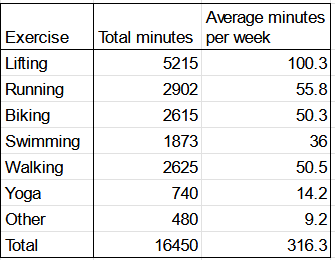I began writing my second book while procrastinating finishing my first book. It's so much more fun to start something new and breathe life into a new project/characters than it is to struggle and battle over editing and catching typos. It honestly wasn't a bad thing to get distracted with something new and exciting--I came back to finish my first book when I was ready, and starting my second book reminded me how stoked I was about my first book idea when I first started writing.
I also took a ton of time off from writing this book after penning what became the prologue and laying out the story in a Google Doc. I left book 2 on the back burner during the few months it took to finally edit, design, format, and finish my first book. Then, I started working full time and didn't come back to this project for 6 months until I quit my job.
As such, I began writing on October 13, 2022 and finished the first draft on March 15, 2024. After editing, the 75,450 word manuscript was finally finished on June 4, 2024. It ended up being about 19,000 words shorter than my first book. Here's a breakdown of how many days I spent writing my second book:
|
|
| Writing sessions | 35 |
| Editing sessions | 23 |
| Formatting sessions | 3 |
| Cover creation | 2 |
| Publishing | 2 |
| Total | 65 |
Throughout my 35 writing sessions, I averaged 2,156 words per day (a decent jump over 1,694 for my first book), with my most productive writing day ever peaking at 5,500 words. That was a long-ass day of writing.
I was much more meticulous about tracking my hours spent editing this time around. Here's a breakdown of the different drafts:
| Draft Version | Days Spent Editing | Hours Editing
|
| First Draft | 8 | 25 |
| Second Draft | 6 | 40 |
| Third Draft | 4 | 10 |
| Fourth Draft | 4 | 12 |
| Final Draft Prep | 1 | 5
|
If you're wondering why I spent 25 editing hours finishing the first draft: I like to edit as I go and sometimes I take breaks from writing to go back and read everything I've written so far. I personally find it helpful to occasionally read all the previous chapters before continuing to write. It reminds me of the tone I established early on. But yeah. Typically for me, my first two drafts involve massive rewrites. But after two passes through, I usually only look for typos and awkward sentences to fix. Once I can read the book without being too disappointed in any given paragraph, I'm just about done. That's what determines how many drafts I write.
Aside: the numbers suggest I spend roughly 50% of my time writing, 40% editing and rewriting, 10% creating covers, formatting, and
preparing for publishing. Basically, when I've finished my first solid draft, I'm about halfway done with the process.
Finally, here are the fun graphs that show my progress over time:



What is, perhaps, most telling in the data is how hot and cold the writing was for me. When I had time and was in the zone, I wrote like a madman. I knew what I wanted the book to be and never lost sight of it, but life and work and other projects got in the way, forcing me into hiatus a few times. So the project spent a lot of time on the back burner, but when it was time to cook, I turned up the heat and got it done.
Lastly, here's a little snapshot of how the numbers compared to writing my first book:
| Days from start to finish | Writing sessions | Words per session | Editing sessions |
| Book 1 | 473 | 56 | 1694 | 34 |
| Book 2 | 600 | 35 | 2156 | 23 | | | | | | | |





